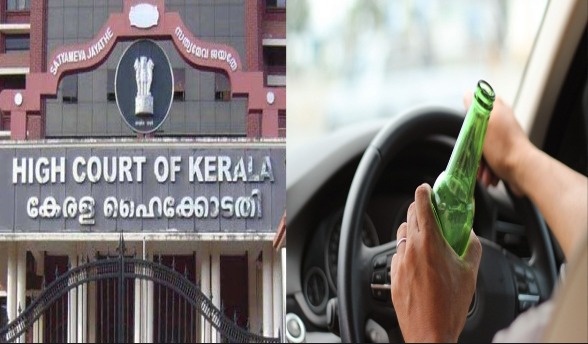
The Kerala High Court has recently ruled that in cases of drunken driving, documentary evidence such as medical reports are not essential to prove if a person was drunk in order to establish his guilt for the offence of culpable homicide not amounting to murder.
According to Justice Bechu Kurian Thomas, even in the absence of medical reports, courts can conclude that an accused person was drunk based on the facts of the case and the statements of the witnesses, making him liable for culpable homicide under Section 304 of the Indian Penal Code (IPC).
“It is not necessary in every case for documentary evidence to prove the fact of drunkenness to bring home the guilt of an accused under section 304 IPC, based on drunken driving and the resulting knowledge of the consequences. If the circumstances of the case and the testimony of the witnesses inspire the Court to conclude that the accused was driving the vehicle while intoxicated, the absence of a statutory mandate for a medical report should not deter the Court from reaching that conclusion. It goes without saying that these are all matters for trial,” the High Court stated.
“Rash or negligent driving on a public road with knowledge of the dangerous character of his act, especially when he drives in an inebriated state, can fall under the category of culpable homicide, not amounting to murder, if the injured died as a result of the injuries,” the Court stated.
The Court passed the order on two petitions challenging the decision of the Session Court to discharge IAS official Sriram Venkitaraman in a case of culpable homicide after the car he was driving crashed into and killed journalist KM Basheer.
Venkitaraman was allegedly discovered intoxicated by police following the accident. However, due to Venkitaraman’s ability to check himself out of the government hospital where the police had taken him, there was a major delay in collecting his blood sample for testing the alcohol level.
Following that, a case was filed against Venkitaraman as well as Wafa Firoz, who was in the car with Venkitaraman at the time.
The Additional District and Sessions Judge -I, Thiruvananthapuram, discharged Venkitaraman and Firoz of the offences under Sections 304 and 201 of the Indian Penal Code (IPC), Section 185 of the Motor Vehicles Act (MV Act), and Section 3(1)(2) of the Prevention of Damage to Public Property Act in October 2022.
However, the Session Court charged Venkitaraman with violating Sections 279 (rash driving) and 304(A) (causing death by negligence) of the IPC, as well as Section 184 (drunk driving) of the MV Act and Firoz with violating Sections 188 (abetment) and 184 of the IPC.
This caused the current two pleas challenging the Session Court order.
One was filed by the State government to challenge the Sessions Court order, while the other was filed by Wafa Firoz to challenge the Session Court’s decision framing charges against her.




